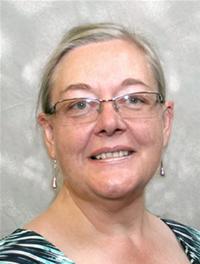Bradford is one of 24 local authorities to secure £350,000 of new funding from the Department for Work and Pensions (DWP) as part of a new government initiative to provide extra support to job seekers with learning disabilities and autism.
The Local Supported Employment (LSE) initiative follows on from a successful pilot across nine local authority areas. As part of the bidding process it was identified that the current supported employment offer in Bradford, although effective, needs to be significantly extended in order to meet the needs of the local population, in particular those adults with a diagnosis of autism not accessing work.
Employment rates for people with autism (26.5%) or with a severe learning disability (25.6%) was significantly lower that the employment rate for disabled people as a whole (52.5%) in 2021.
Up to 100 adults with learning disabilities, autism or both will be supported by the LSE initiative to move into competitive employment and provide the help they need to maintain that employment. The LSE will run in Bradford from November 2022 until March 2025 and the Council will work with a dedicated supported employment provider, United Response, to provide employment opportunities through the initiative.
United Response have previously delivered successful supported employment programmes as part of the DWP pilot scheme. The programme in Bradford will follow the 5-Stage Employment Model; participant engagement, vocational profiling, engaging employers, job matching and in-work support and career development.
Job seekers will receive support from job coaches who will carry out vocational profiling, engage employers and provide in-work support to help develop more careers. Support offered will be tailored to the individual needs of each job seeker; support is person centred and will focus on the strengths of each person taking part.

Cllr Sarah Ferriby, Executive Member for Healthy People and Places, said, “Securing this funding is great news for Bradford and we know there is strong international evidence that the supported employment model is effective in terms of finding and sustaining work for adults with autism and learning disabilities. Working with our partners at United Response and the Job Centre will ensure we are able to provide those with autism a more tailored support and advice package to ensure they have a more secure future of employment.”
A key part of the programme in Bradford will be promoting the benefits of Disability Confident employer status which plays a leading role in changing attitudes towards disabled people. Autism, whilst gaining attention recently, is still misunderstood. A key outcome of this programme will be to support employers to think differently about disability, and improve how they attract, recruit and retain disabled workers whilst understanding the benefits to their business by drawing from the widest possible pool of talent to secure high quality staff who are skilled, loyal and hard working.




